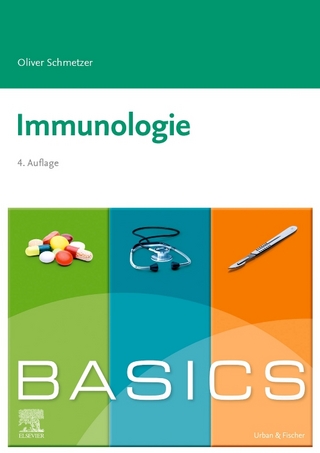
Mema's House, Mexico City
On Transvestites, Queens, and Machos
Seiten
1998
University of Chicago Press (Verlag)
978-0-226-68256-3 (ISBN)
University of Chicago Press (Verlag)
978-0-226-68256-3 (ISBN)
- Titel z.Zt. nicht lieferbar
- Versandkostenfrei innerhalb Deutschlands
- Auch auf Rechnung
- Verfügbarkeit in der Filiale vor Ort prüfen
- Artikel merken
Mema lives in a crowded urban space on the outskirts of Mexico City. Her house is a sanctuary for young homosexual men and transvestites. Mema is an AIDS educator and leader of the group. This study follows the transvestites in their daily activities, and analyzes their complicated relations.
Mema's house is in the poor quarter Nezahualcoyotl, a crowded urban space on the outskirts of Mexico City where people survive with the help of family, neighbours, and friends. This house is a sanctuary for a group of young homosexual men who meet to chat, flirt, listen to music, and smoke marijuana. Among the group are sex workers and transvestites with high heels, short skirts, heavy make-up, and voluminous hairstyles; and their partners, young, bisexual men, wearing T-shirts and worn jeans, short hair, and maybe a moustache. Mema, an AIDS educator and the leader of this gang of homosexual men, invited Annick Prieur, a European sociologist, to meet the community and conduct her fieldwork at his house. Prieur lived there for six months between 1988 and 1991, and she has kept in touch for more than eight years. As Prieur follows the transvestites in their daily activities - at their work as prostitutes or as hairdressers, at night having fun in the streets and in discos, on visits with their families and even in prisons, a story unfolds of love, violence, and deceit.
Prieur analyzes the complicated relations between the effeminate homosexuals, most of them transvestites, and their partners, the masculine-looking bisexual men, asking why these particular gender constructions exist in the Mexican working classes, and how they can be so widespread in a male-dominated society, the very society from which the term "machismo" stems. Weaving empirical research with theory, Prieur presents new analytical angles on several concepts: family, class, domination, the role of the body, and the production of differences among men.
Mema's house is in the poor quarter Nezahualcoyotl, a crowded urban space on the outskirts of Mexico City where people survive with the help of family, neighbours, and friends. This house is a sanctuary for a group of young homosexual men who meet to chat, flirt, listen to music, and smoke marijuana. Among the group are sex workers and transvestites with high heels, short skirts, heavy make-up, and voluminous hairstyles; and their partners, young, bisexual men, wearing T-shirts and worn jeans, short hair, and maybe a moustache. Mema, an AIDS educator and the leader of this gang of homosexual men, invited Annick Prieur, a European sociologist, to meet the community and conduct her fieldwork at his house. Prieur lived there for six months between 1988 and 1991, and she has kept in touch for more than eight years. As Prieur follows the transvestites in their daily activities - at their work as prostitutes or as hairdressers, at night having fun in the streets and in discos, on visits with their families and even in prisons, a story unfolds of love, violence, and deceit.
Prieur analyzes the complicated relations between the effeminate homosexuals, most of them transvestites, and their partners, the masculine-looking bisexual men, asking why these particular gender constructions exist in the Mexican working classes, and how they can be so widespread in a male-dominated society, the very society from which the term "machismo" stems. Weaving empirical research with theory, Prieur presents new analytical angles on several concepts: family, class, domination, the role of the body, and the production of differences among men.
Preface Introduction: The First Night 1. The Setting and the Approach 2. Everyday Life of a Jota 3. Little Boys in Mother's Wardrobe: On the Origins of Homosexuality and Effeminacy 4. Stealing Femininity: On Bodily and Symbolic Constructions 5. Machos and Mayates: Masculinity and Bisexuality 6. On Love, Domination, and Penetration Concluding Notes Bibliography Index
| Erscheint lt. Verlag | 3.2.1998 |
|---|---|
| Reihe/Serie | Worlds of Desire |
| Sprache | englisch |
| Maße | 15 x 23 mm |
| Gewicht | 624 g |
| Themenwelt | Geisteswissenschaften ► Psychologie ► Sexualität / Partnerschaft |
| Studium ► Querschnittsbereiche ► Infektiologie / Immunologie | |
| Sozialwissenschaften ► Soziologie ► Gender Studies | |
| ISBN-10 | 0-226-68256-0 / 0226682560 |
| ISBN-13 | 978-0-226-68256-3 / 9780226682563 |
| Zustand | Neuware |
| Haben Sie eine Frage zum Produkt? |
Mehr entdecken
aus dem Bereich
aus dem Bereich
Buch | Softcover (2023)
Lehmanns Media (Verlag)
19,95 €


